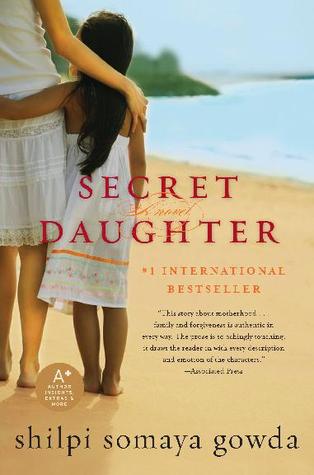Rating: I would rate it 3.5 stars if I could.
Cliff Notes: I loved all of the Indian culture present in this book. The author did a great job describing it in great detail. The themes of motherhood and what that means for women really struck a chord with me, making it hard to read at times.
Full Summary: I don’t think this is spoiler-ish at all, but read the review at your own risk. Somer could not have kids and struggled with that infertility and what it meant about her as a woman. It really struck a chord with me as I have had these same thoughts. Not that I struggled with infertility, but as a woman who does not have biological children of her own.

Throughout evolution, one of the main “purposes” for women is to procreate, to carry children, nurture them, work with other women to foster a community in which to raise the children. This is not my jam. I am about as nurturing as a porcupine, although it has gotten a bit “easier” as the kids have gotten older. Teenagers don’t really want to cuddle – they actually don’t even want to be on the same level of the house with us. I put “easier” in quotes because let’s be honest – the bigger the kid the bigger the problems. We certainly have had our fair share. But I am specifically talking about my ability to be maternal and nurturing. Or not be maternal and nurturing, as it were.
When I first became a step mother and we made the choice to not have children of our own, I did struggle with the idea that I had no purpose as a woman if I was not going to have my own kids. What was broken in me that I did not long for that? Over time I have come to see different ways. I can make a difference in the lives of kids – my nieces or my step kids. Friends’ kids and such. Not everyone needs to birth kids in order to make an impact in their lives. Nurturing can look many different ways.
Leave A Comment